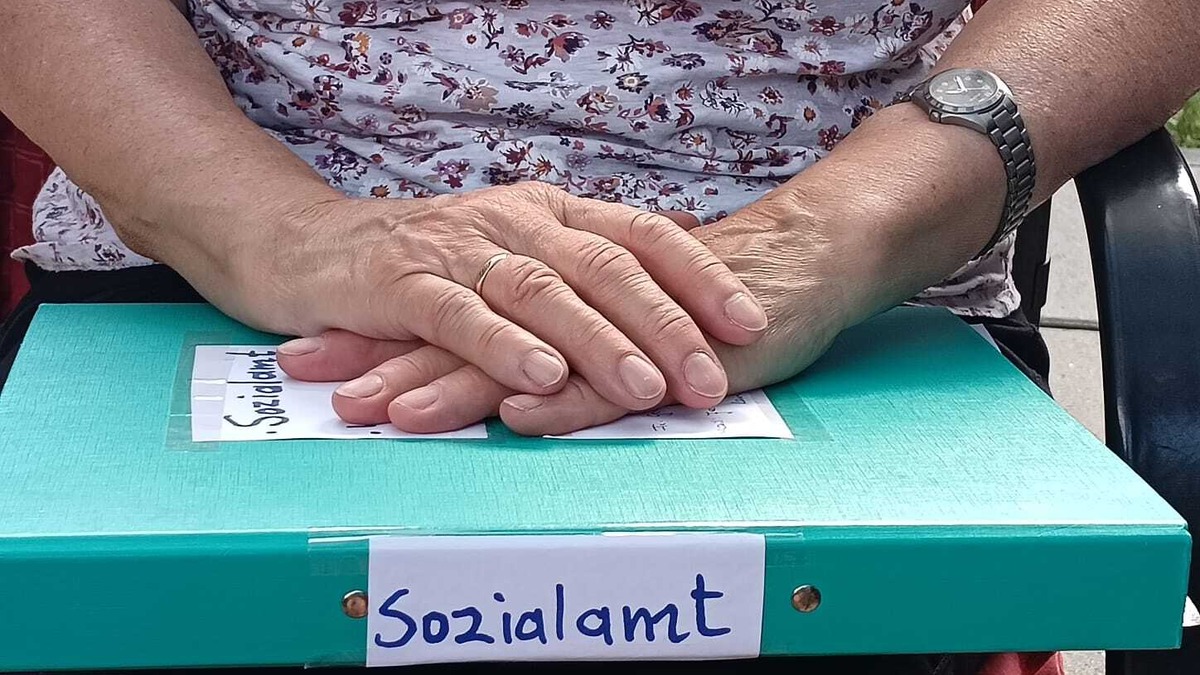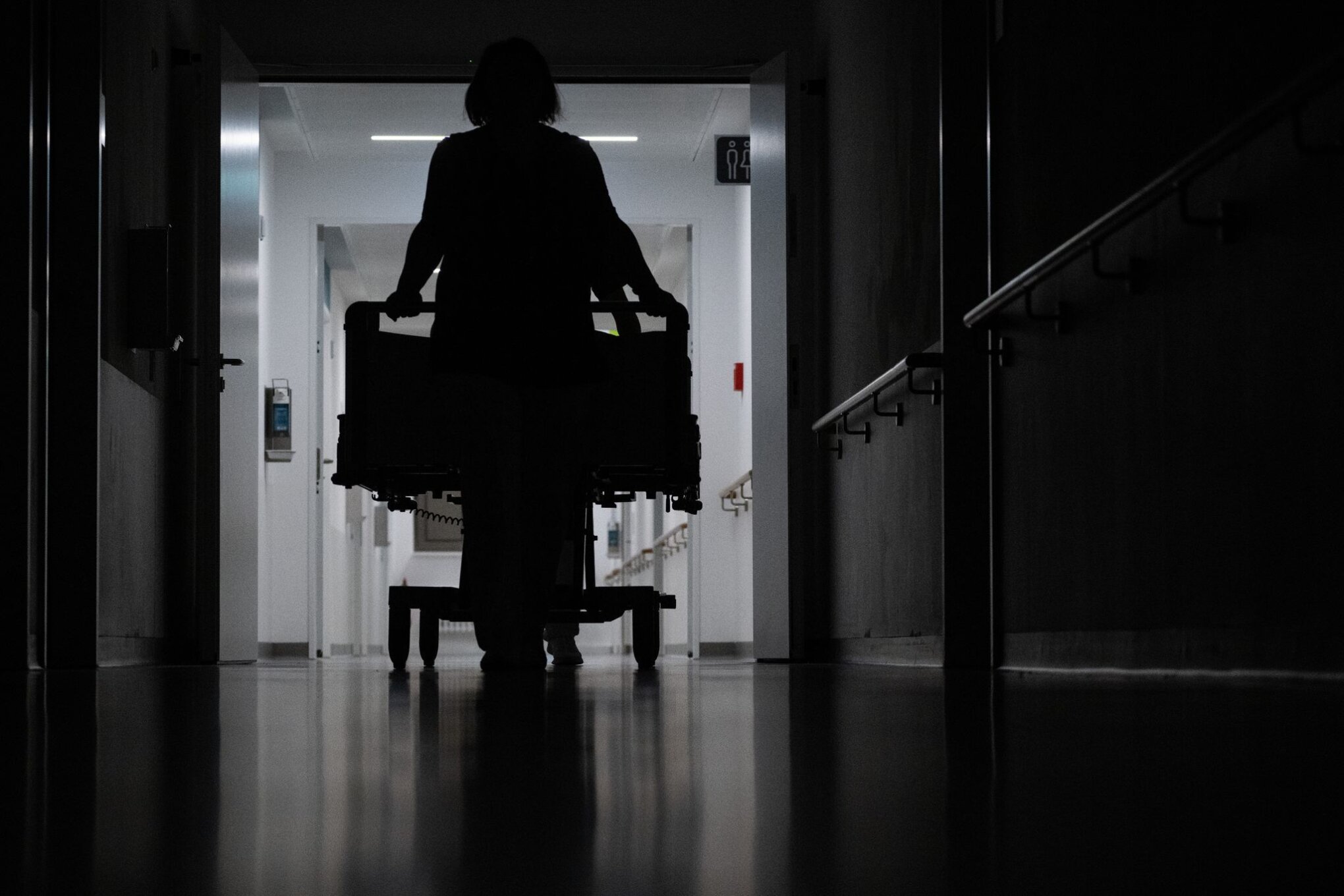She puts her hands on the folder marked “Social Welfare Office”. It contains a summary of her life and that of her husband on over a hundred pages. And an assessment. After two hours she says: “That’s the fact.” She has told how she came to have no more strength. “I don’t know if it’s right to get caught up in the machinery like that.” That is the story of the 70-year-old and her husband. The woman from a small village near Pirna does not want to read her name in the newspaper because she wants to keep a small chance against the office, as she says.
Her husband’s dementia was diagnosed eleven years ago. The medication helped, they went on vacation, and enjoyed their home. He was the cook, she the gardener. They built the house in 1995 and are still paying off the loan.
“Then he sleeps and we celebrate”
Two years ago, he became increasingly restless. Panic attacks led to more medication. He then went to day care one day a week. He felt comfortable there, she had a day for herself and what needed to be done. “That was the right thing,” she says today about that time. Both of them came to terms with this change in their lives. In the spring of 2022, they both went to rehab sports together. But in the autumn of that year, his condition deteriorated rapidly, his day-night rhythm became completely messed up. After three weeks in which neither of them had slept much, he was admitted to the psychiatric department of the Pirna hospital.
She was repeatedly advised to put him in a nursing home. “I decide when,” she says. She was still hoping for help, but at the same time she was standing in her own way and was prepared for dementia and what this disease brings with it. She had read a lot and faced up to it, as she says. Her husband came home before Christmas. “It was hell,” she says. One visitor said she should give him a double dose, then he would sleep and we would celebrate. This visit was the last time. “My part is to be there for my husband, I need my strength for him.”
The time for the nursing home
The year 2023 began with 13 days in the Joseph-Stift in Dresden. After that, he felt better, and so did she. They went for a lot of walks and drove around in the car. The doctor had told her to remember that the dose of medication would last for six months. She didn’t think that she was right and that time would pass so quickly. On his 74th birthday in June, he became restless, active and unpredictable again. Two days later: the next level of medication, more and stronger.
The thought of the nursing home keeps coming back to her mind. “I’ll register him, but I’ll decide when.” Making this decision was just as cruel for her as having to witness her husband’s decline. It’s not just the illness, but everything that people in this situation have to experience, decide and cope with.
In February 2023, when he was already at care level four, she had the bathroom remodeled. The living room was made brighter. “We can’t go on vacation anymore, so the money should benefit him,” she says. She wanted to do everything for him. And it did him good. “I told myself I did everything right.”
“He thought I was his mother, that was hard”
In July 2023, her husband was treated for four weeks in a psychiatric hospital in Arnsdorf. She took three days for herself and was in the Spreewald with a friend. “That did her good,” she says. A recharge. Then the golden wedding anniversary. A week before, he no longer recognized her. “He thought I was his mother, that was hard.” On the day of the wedding anniversary, she set the table beautifully, ordered and fetched food. That was important to her. She implemented her promise from 50 years ago – “For better or for worse.”
Until September he went to day care four days a week. There she was advised to put him in a home because he was becoming increasingly difficult. From then on things went “downhill” steeply. He lost 23 kilograms. There were days when he needed twelve diapers, even though he hardly ate. She gave in. Now the time had come. She received an acceptance from one of the three homes she asked. But not overnight.
A sobering calculation
Shortly before Christmas, he contracted Corona. So badly that the family said goodbye to him in the hospital. The stupidest time to die, but is there a right time?, she says. Her husband did not die. At the beginning of January, he was taken straight from the hospital to the nursing home. She waited for him there for three hours. When he was – her quote: “loaded” – she felt bad. He had no strength left and said in a moment of awareness: “Hopefully it won’t be long.” She felt that the scepter of action had been taken from her hands. “I didn’t want to believe it and didn’t know what was still to come.”
In addition to the emotional toll all this was taking on her, she also had other worries. They started with the 20-page form from the social welfare office for support with the nursing home costs because her husband’s pension is not enough. His pension is around 1,300 euros, the place costs 1,665 euros a month until April 2024, and from May it will be 2,020 euros. “I don’t want the nursing staff to get more money, I see what they do, but how am I supposed to pay for it?”
Her pension is 1,700 euros, the house costs the usual costs, plus a monthly loan of 600 euros, plus 300 euros for the bathroom renovation loan and, since January, 365 euros for the place in a home. There is not much left for her, she has no big savings. Her small car was valued, she had to provide bank statements going back three years, the funeral insurance is counted as assets, and each spouse is allowed to keep 10,000 euros. “I understand, but what is being asked for… You are treated as a potential fraudster from the start. Of course there are some, but they don’t even know me.”
No receipts: no additional payment
She had to submit the bank statements several times without knowing why. She did everything that was asked and explained it personally. Despite that, she didn’t receive any additional payment. The reason: she didn’t have any receipts for some expenses related to improvements to the house for her husband because he had torn them up.
The months-long battle with the social welfare office, plus two or three times a week in the nursing home with her husband. She tries to be there for him, does everything for him, but enduring all of this pushes her to her limits again and again. She brings him ice cream and cake, enjoys it as much as he enjoys it. “I can’t do more,” she says sadly. She is “terrified that he will run into the street and get run over.” She has to learn to deal with this fear, she says.
She and her children decided not to appeal against the rejection. Together they will cover the additional costs of over 700 euros per month for the husband and father for a year. She will not be able to apply again for at least eleven months. “I know I made a mistake and it affects many people like me. People who have done nothing wrong are left alone.”





